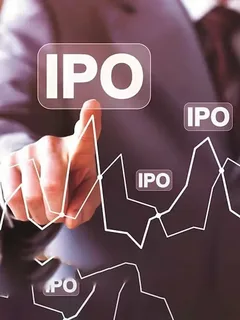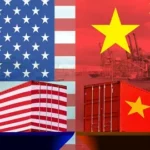CATL, the world’s leading electric vehicle battery maker, is taking a milestone step by rolling out potentially the largest IPO in 2025 in Hong Kong—leaving out some US funds from inclusion. This brazen move emphasizes the increasing chill between the US and China and how international corporations are evolving to thrive in the highly polarized geopolitical landscape. CATL hopes to raise no less than $4 billion from this listing, possibly up to $5.3 billion with oversubscription, establishing it as a market leader in EV batteries and securing this position as the year’s largest global IPO.
Read More: Palazzo Versace Dubai Returns to Auction at Unbelievable New Price
CATL’s Hong Kong IPO: A Pivotal Financial Moment
The Hong Kong IPO is a turning point not just for CATL but for global financial markets. With heavyweight cornerstone investors like Kuwait Investment Authority, Sinopec, and Hillhouse Investment in line to participate, the offering is expected to double the city’s IPO proceeds in 2025. This listing may propel Hong Kong’s total fundraising to nearly $22 billion, reaffirming the city’s role as a key fundraising hub despite regulatory hurdles and global uncertainty. The IPO also provides a test case for the way Chinese companies can navigate political tensions in order to access international capital.
Excluding US Funds: A Strategic Reg S Offering
In a surprising turn of events, CATL has elected to form its offering under Regulation S (Reg S), which prohibits sales to US onshore investors. Whereas offshore branches of large US institutions can still invest, domestic US mutual funds and individual investors are excluded, an extremely rare step for a deal of this magnitude. This configuration assists CATL in evading US legal submissions, lowering risk exposure to sanctions, and conveying the extent to which Chinese companies are serious about US regulatory and political risk. In doing this, CATL is rewriting how big companies approach opportunity versus geopolitical risk.
Geopolitical Threats: Pentagon Blacklist and Allegations of Forced Labor
Exclusion of US investors directly correlates with intensifying geopolitical pressure. The Defense Department in the US, at the start of 2025, added CATL to the military end-use blacklist for alleging that the firm has connections to the Chinese military—a connection it denies. It automatically invited US sanctions further threatening its global business. Additionally, the firm has received criticism for reported connections to forced labor within Xinjiang, which has sparked ethical disputes and encouraged US legislators to urge banks such as JPMorgan Chase and Bank of America to pull out of the IPO. CATL continues to advance, however, with such strength and strategic vision during times of crisis.
A New Playbook for Global Fundraising
CATL’s commitment to pursue its IPO—regardless of regulatory and geopolitical uncertainty—shows a new playbook for Chinese companies raising funds in the international markets. Its leadership in EV battery space with customers such as Tesla, Ford, and BMW provides it with unparalleled bargaining power. By keeping out US retail capital but still pulling in international institutional funds, CATL is creating a template for other Chinese companies seeking to raise capital without drawing the regulatory fire of Washington. This approach could speed up the decoupling process and redefine the way global capital flows function in the future.
As the world observes CATL’s record-breaking Hong Kong IPO, one thing is certain: this is not just a money deal. It’s a potent sign of just how much business, politics, and cross-border investment have become entangled. CATL is not raising billions—it’s issuing a warning.
For More Trending Business News, Follow Us 10xtimes News






